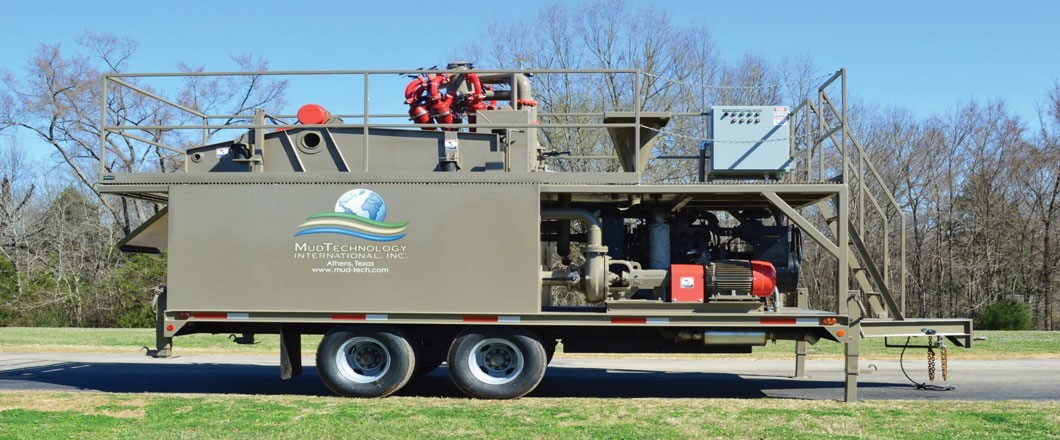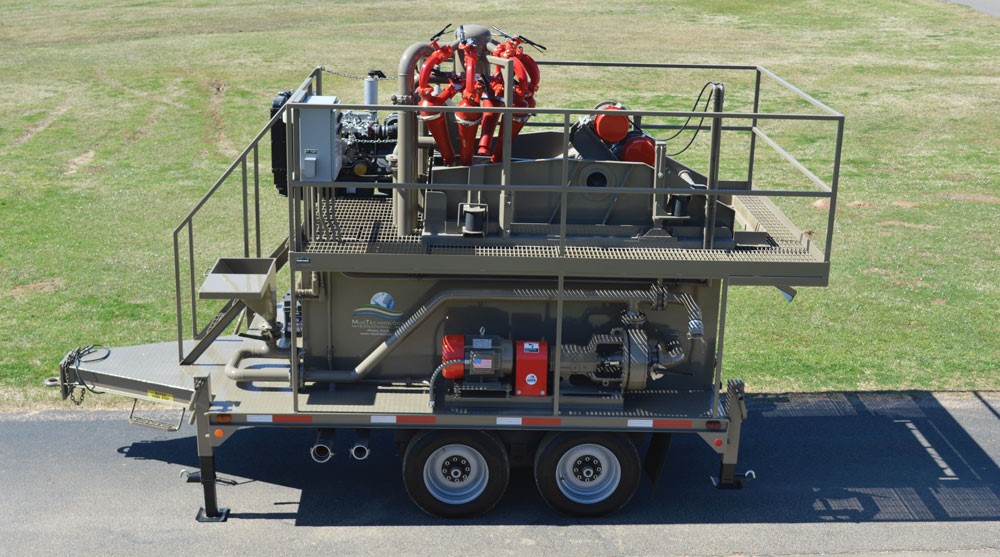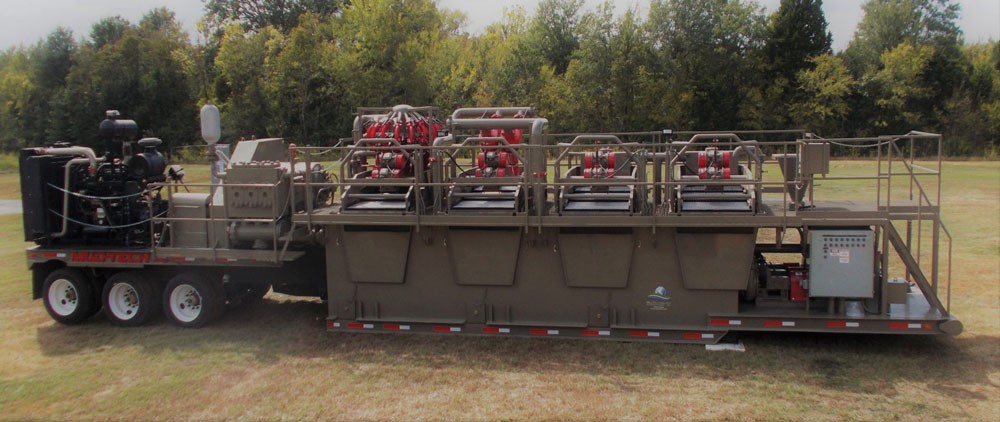
Mud recycling systems were once thought of as an integral component just for large diameter horizontal directional drilling (HDD) projects. That belief is a thing of the past as mud systems have grown into an essential piece of equipment for HDD projects of all shapes and sizes.
As 2020 got under way, the mud recycling system faction of the trenchless market started the year off so positive — making a push for an even stronger year ahead. Smiles all around for mud system manufacturers and suppliers! Then, like most everything in the world, COVID-19 brought most HDD projects to a standstill or postponed indefinitely as the construction industry waded through how to safely proceed.
Now, work has slowly returned but customers are cautious, making sales slow. Will they return? Where do mud system manufacturers go from here?

Even as the global pandemic has impacted the HDD industry, the mud system market today has shown overall growth vs. previous years. If not for the pandemic, who knows where the market would be nine months into 2020. “The mud systems market today has grown compared the last three years,” says John Miller, who has led Mud Technology International since 2003. Mud Technology manufactures mud pumps, reclaimers and trash pumps to OEM specifications.

Unfortunately, the momentum of the first part of 2020 is gone. “Significant opportunities in January and February stalled with the outbreak of the COVID pandemic and we have not returned to the levels of activities we saw in the first two months of 2020,” Miller notes.
With many projects delayed or indefinitely shelved, customers are tightening their purse strings in 2020 and holding off making that expensive mud system purchase. But some are inquiring about new purchases only to have the projects they were intended for put on the backburner.
“We’re seeing returning customers, as well as new customers that have purchased equipment this year,” Miller says. “We’ve seen a number of new customers that were pricing equipment based on contracts that were to be let, only to find the work had been cancelled.”
Are contractors turning to renting vs. buying new? It’s a viable option in many project circumstances or if customers are trying to determine a particular system would be worth the long-term investment. “We’re still seeing a strong mix of buyers to those looking to rent — 70/30 [ratio,]” Miller says. “Most of the rental market is typically due to an operator needing equipment for the short term or for a project that has come up and all their other equipment is allocated to work.”
Tulsa Rig Iron offers a rental fleet of mud pumps and recyclers and Flynn notes that this department, as well as the parts department has stayed brisk throughout the pandemic. He adds that he has seen inquiries for used equipment. “Traditionally, we have a large number of requests for used equipment, which has continued through the pandemic time, as well,” he notes. “We rarely have used equipment available, as equipment is normally snatched up pretty quickly in the used market.”
As the HDD industry has matured, so has the HDD customers. Information is all around them today, most can be found with a click the mouse or swipe on their phones. Contractors understand the importance of having the right mud recycling system for their particular project.
“Contractors these days are definitely buying smarter, due to the increased awareness of the importance of good pump and recycling equipment,” Flynn says. “An efficient and properly maintained mud pump and mud recycling system will allow your drill to operate more efficiently and ultimately do a much better job, along with protecting the integrity of your drill and downhole tooling.”
Savvy is the word Miller uses to describe today’s customers. “As with any industry, the amount of information available is more widespread and shared,” he says. “With the use of the Internet, it’s easier to find out specific information about almost every aspect of the work and the equipment.”
One of the takeaways Miller sees from today’s customers is that their questions about a potential purchase are much more direct and specific. “Most the customers — 80 to 85 percent — don’t have many general questions but rather specific requests. They know what they are wanting and about what they should expect to pay.”
Flynn explains as example that at Tulsa Rig Iron, equipment is designed to be easy to operate and maintain and most importantly, simply designed and cost-effective. “At the end of the day, if brand A and brand B achieve the same great results, why pay for expensive gimmicks?” he asks.
Buy equipment for the long term: Buying something larger than your current project needs will likely save you significant dollars with future work.
Rent vs Buy: If you’re new to a piece of equipment, look at possibly renting a similar unit to understand how it operates and functions. You’ll find what you what, you like and what works best for you without spending capital that could be better focused.
